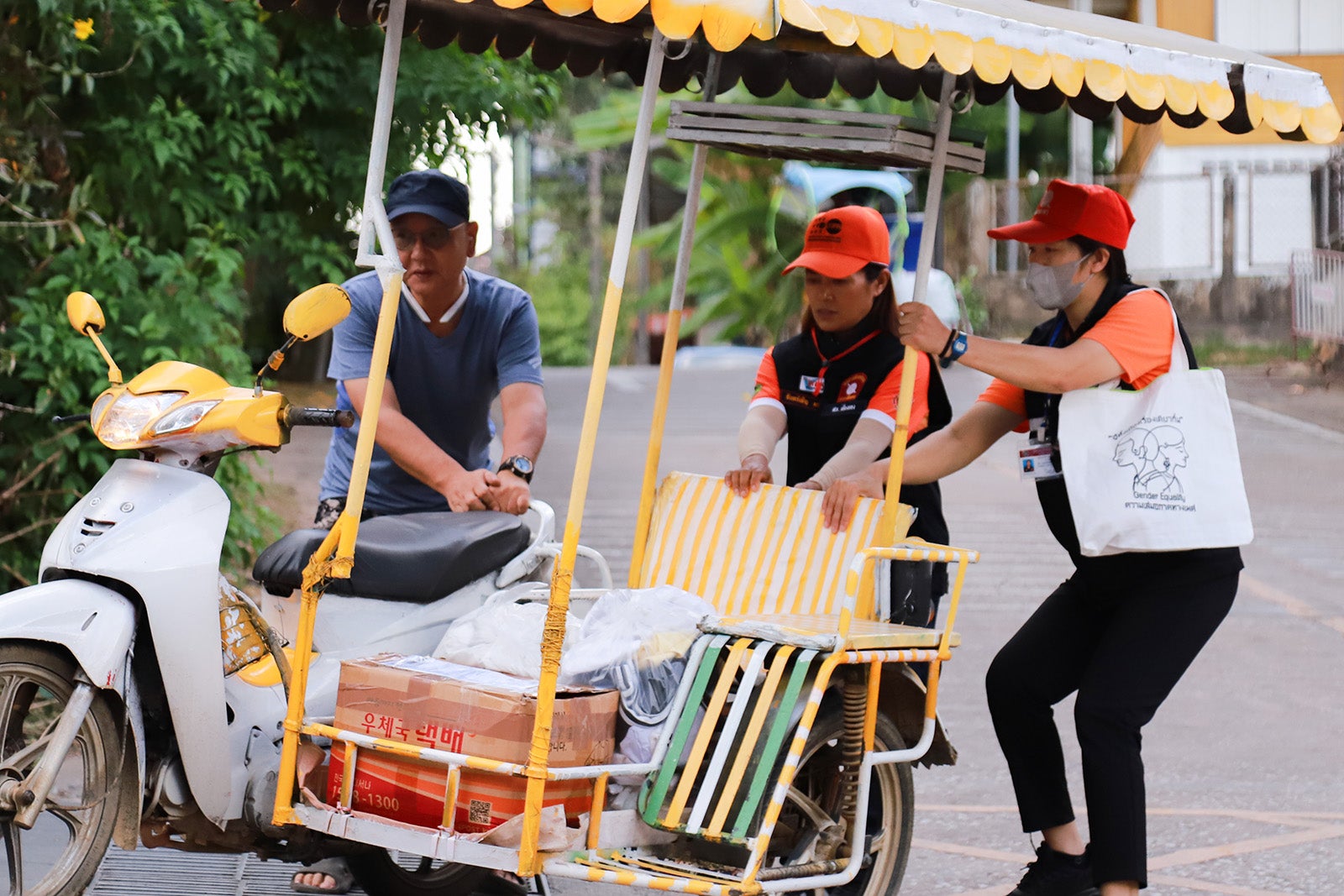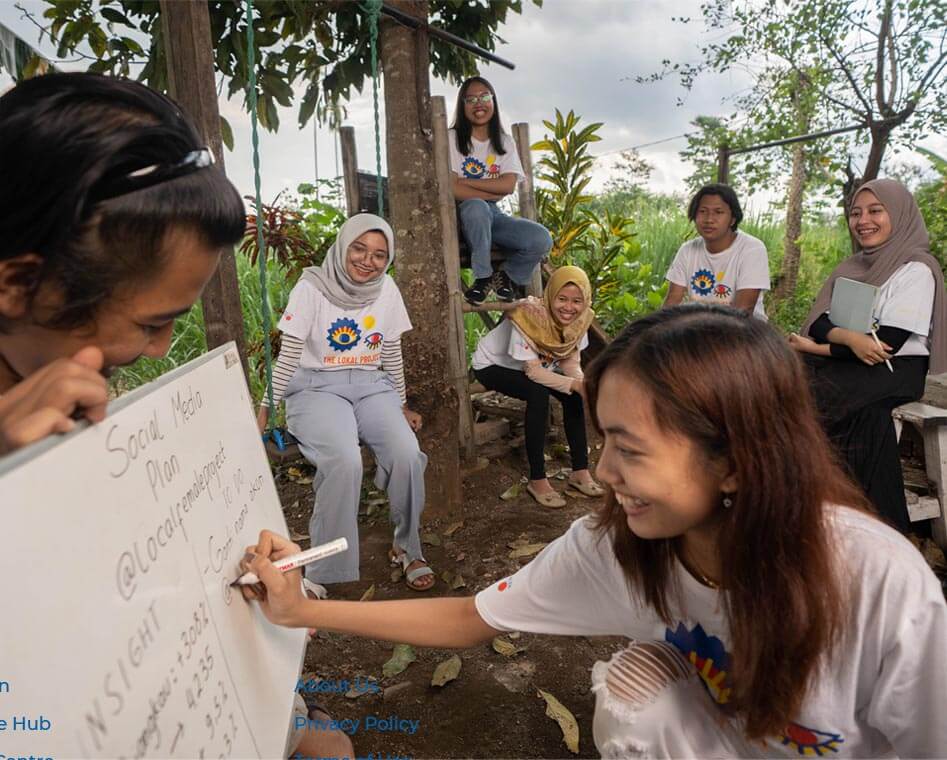In the words of Nongluck Yanghansirikul: “We serve as ears and eyes, a sounding board for women and the community”

Nongluck Yanghansirikul, a 36-year-old ethnic Hmong woman with three children, lives in Kiew Doi Luang Village, Chiang Khong District, Chiang Rai Province in northern Thailand. As a member of Female Civic Security Volunteer or known as Nam Som (Orange Juice) Troops, she helps women to report cases of violence against them. She does agricultural work and sewing and cutting fabric as part of a women’s socioeconomic empowerment project by Center for Girls Foundation and is a member of the Women’s Economic Empowerment and Learning Centre supported by UN Women and funded by the Ministry of Gender Equality and Family of the Republic of Korea.
Most people from our ethnic group don’t accept women in leadership roles. When we work with community leaders, we explain that we received trainings and that we can contribute to the community’s welfare as members of the Troops.
We also assist police. We become their eyes and ears on violence issues, especially concerning women and children. Due to our village’s remote location in the mountain, it poses a challenge for police officers to frequently come and take care of matters, considering the considerable distance from the city. For instance, we receive reports from WEE Center. If the police informs us about the potential issues for example, concerning children, we go to assess and take care of the children first.
The most common issue in the villages is domestic violence against women. We help survivors by explaining that we are part of Nam Som Troops and the Women’s Economic Empowerment and Learning Center (WEE Center) and asking what help they need. Sometimes they want to divorce their husbands but face difficulties. But sometimes they simply want us to be aware of the situation.
Hmong society is patriarchal and people believe that men are more powerful and must be the leaders of family and the society. The reason for domestic violence (among others) is men want their wives to be in their control. Once a Hmong woman is married, it means she belongs to her husband. When women face problems, they don’t dare talk to male leaders. But as part of Nam Som Troops, we are trusted and women victims can talk to us openly. We serve as ears and eyes, a sounding board for women and the community. When they come back and say, ‘Thank you for always helping,’ we feel proud of ourselves.

When women are oppressed, there is less peace – they face insecurity in life. If men accept that women hold equal rights, it would be more peaceful. I want to see a change for more peace, security and equality.
I feel more confident now. In the past, I had no role to play. I had to be inside the house doing domestic work. But now, after having the opportunity to learn and interact with other women, I feel more confident. I’m proud that I can contribute just like men.

